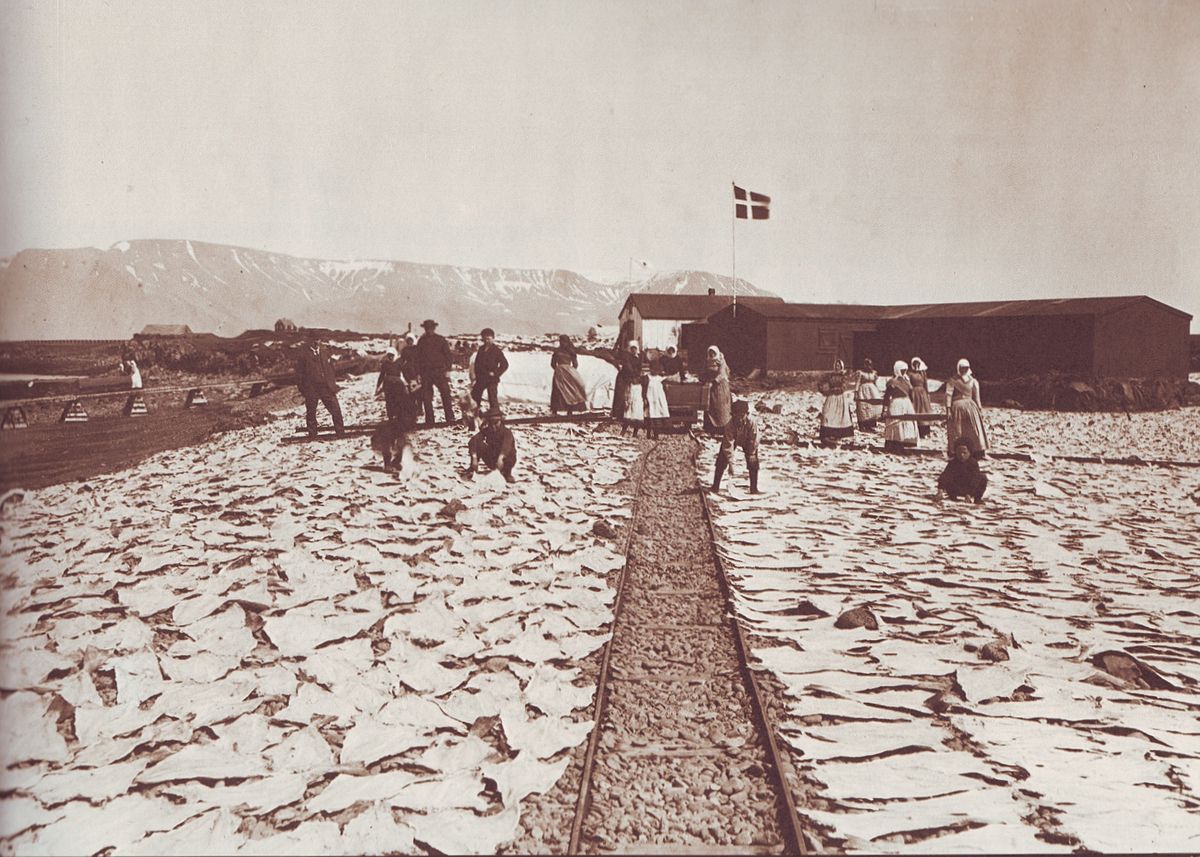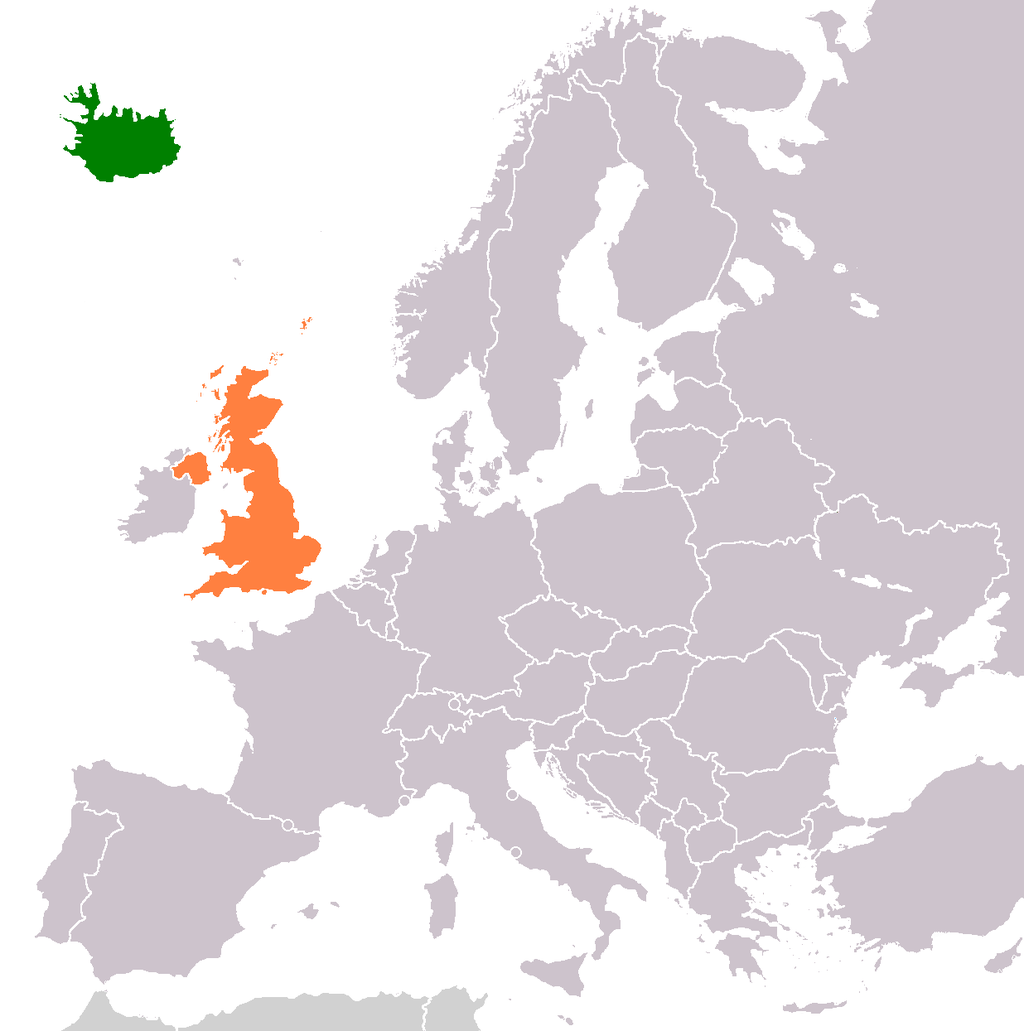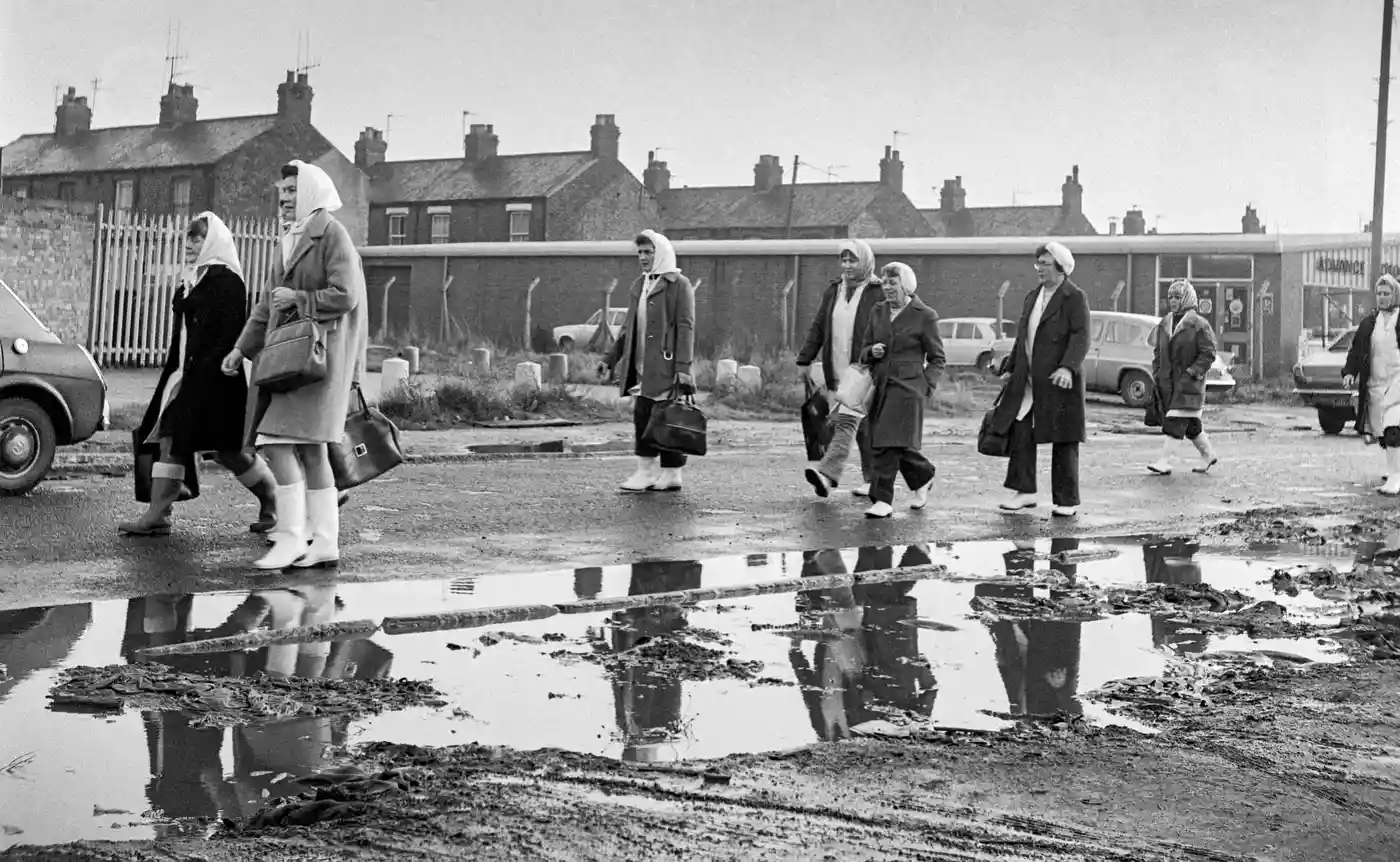The Cod Wars
The Importance of Fishing

Drying of Salt Cod in Kirkjusandur, Iceland, Wikimedia
Fish has historically been a major part of Icelandic diets. It gained immense economic importance in the 20th century, as technological developments allowed Icelanders to easily commercialize fishing. During the 20th century, most of Iceland’s exports consisted of fish-related products, making the nation’s local fishing waters crucial to its overall economic health.
"Iceland has what may be described as a one-crop economy in that more than 90 percent of the country’s exports consist of fish and fish products, the returns from which make possible extensive imports vital to the Icelandic economy."
~ State Department, 1949, Policy Statement of the Department of State

Iceland (Green) & Britain (Orange), Wikimedia
Given the richness of the waters, they also became the target of British fishing trawlers in the 1890s. Catches made near Iceland were critical to the economies of British coastal fishing towns like Hull, Grimsby, and Fleetwood. In the mid 20th century, approximately half of Britain's distant fishing fleet made their catches in Icelandic waters.

Hull Fish Workers in White Wellies and Headscarves, 1977, The Guardian
Decreasing fish stocks from overfishing, rising economic importance, and competition from British trawlers, caused Iceland to desire an enlargement of its territorial waters. Given both nations’ economic stakes in the region, Iceland’s unilateral expansionist policies during the first and subsequent cod wars became a point of contention between the two nations.